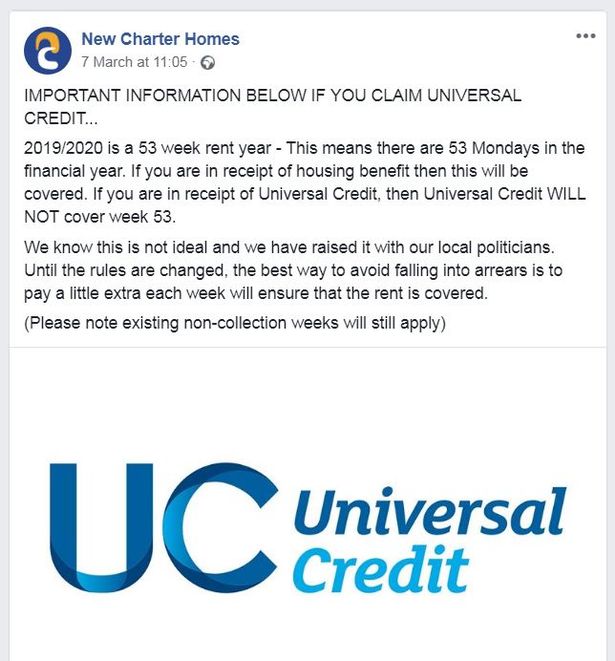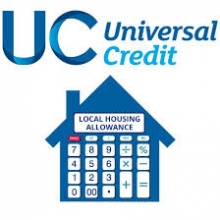Work TV
Watch our TV Channel dedicated to the ‘World of Work’. Explore our video library for informative videos featuring career opportunities at leading companies, franchising opportunities, further education and recruitment professions and their services.
Simon Collyer
South Ribble Council Reduces Tax from Low Income Households
COUNCIL INNOVATION - The lowest income households in South Ribble will no longer have to pay a minimum council tax contribution.
Currently, at least £3.50 per week is deducted from the incomes of certain benefit claimants in the district – but South Ribble Borough Council has now voted to scrap the charge.

Image: Aniela Bylinski Gelder.
Cabinet member said the change would mean “those who can least afford it will no longer need to divert resources away from their families”.
The intiative has kicked of a row between the ruling Labour group and opposition Conservatives about whether it was the best way of helping the poorest.
ABC Comment, have your say below:

Local Housing Allowance Rates to Rise
DWP NEWS - Local Housing Allowance: Rates to Rise.
Local Housing Allowance (LHA) rates will rise with inflation from April 2020. There are around 1.4 million people in the private rental sector receiving Local Housing Allowance, and this change will provide an average of around £10 a month more to affected households. Payments will increase automatically – people do not have to apply to receive the extra money – and they should see a change in their housing payments from 1 April 2020.
ABC Comment, have your say below:

Banner Theatre Presents a Powerful New Show About The NHS - Free For All
COLCHESTER - Banner Theatre, presents a Powerful New Show About The NHS - 'FREE FOR ALL'
'Free For All' is a 999 Call for the NHS!
Powerful songs, dynamic music, unique video footage and moving storytelling. A tribute to a health service still rated the most efficient and successful in the world, this show celebrates the passionate dedication to a publicly owned health care system free for all at the point of delivery.
In 1948 the NHS was established, offering health care free for all at the point of delivery.
In 2020 the NHS is up for auction in a ‘free for all’ to private health corporations.
NHS crisis: Too many old people, drunks, immigrants? Or a 30-year old plot to kill the NHS?
NHS safe in Tory hands? Or the corporate master plan: Health Care USA?
Lazy doctors and nurses? Or a media onslaught to undermine the NHS?


Venue:
Date: Sunday 16 February
Time: 12.30 for lunch show starts 14.00
Entrance Fee: £12 and £8 This email address is being protected from spambots. You need JavaScript enabled to view it.
ABC Comment, have your say below:

'Obscene' 18-Month Delay for DWP Complaints Points Out BBC
BBC - The BBC Money Box programme has been highlighting the long weighting time for complaints to be decided by the Department of Work and Pensions. This can be as long as eighteen months to have cases adjudicated, and in some cases as long as four years.
BBC Radio 4's Money Box has also learnt that nearly two-thirds of investigations miss their target of being cleared within 20 weeks.
There is another issue – that of Mandatory Reconsiderations. By not making decisions within a reasonable period, or not at all, people cannot take their case to the Independent Case Examiner.
Long delays wear down all but the most determined complainants, and it is a way that the DWP benefits as many people will give up. Unless a claimants case is rigorously documented and vigorously pursued, claimants can find that their memory of events can grow weak waiting this long to have their cases adjudicated. All of which is good news for the DWP.
ABC comment, have your say below:

The Pink Tax: How Women Pay More for Pink
FINANCIAL EXPLOITATION - We were approached by a US organisation that wants to highlight the issue of explotation and discrimination by retailers, manufacturers finance and credit card companies.
The Pink Tax: How Women Pay More for Pink.
It is a poorly kept secret that retail campaigns often target female consumers due to the antiquated idea that women like to shop and spend more money than men. Perhaps a better-kept secret in consumer sales, however, is not that women face more targeted advertising, but that items women buy often cost more than identical or very similar “men’s” products.
Gender-specific pricing (where items for women cost more than items for men) is often referred to as the “Pink Tax.” Despite its name, the Pink Tax is not a tax but rather a system of discriminatory pricing that can cost the average woman more than $1,300 a year.
To firmly entrench female consumers in their gender-normative sales practices, manufacturers often use bright pink or purple packaging, and sweet scents like peony, vanilla and even “fruity bubble in paradise” to make sure women know the product is just for them.
The Pink Tax doesn’t only affect adult women. A study from the New York City Department of Consumer Affairs found that young girls cannot escape the pitfalls of the Pink Tax because “girl toys” cost on average 2 percent to 13 percent more than “boy toys” that are the same other than their color.
This speaks to one of the fundamental problems with the Pink Tax: it’s not always simple to identify.
Sure, you notice when your razor or shaving cream costs more than men’s products, but what about shirts? Pants? How can you tell if you are paying more for products that don’t have an easy comparison point? Merchants, brands and product quality vary, making it hard to determine a fair price without gender bias.
The most accurate product comparisons consider merchandise of similar quality from the same manufacturer — and in these comparisons, gender bias is prevalent among many top clothing stores. For example, the average cost of a woman’s pair of jeans at one popular retailer is $62.75 while comparable men’s jeans at the same store cost $57.09 —a 10 percent price increase for women.
The scope of Pink Tax pricing
The Pink Tax doesn’t only affect adult women. A study from the New York City Department of Consumer Affairs found that young girls cannot escape the pitfalls of the Pink Tax because “girl toys” cost on average 2 percent to 13 percent more than “boy toys” that are the same other than their color.
This speaks to one of the fundamental problems with the Pink Tax: it’s not always simple to identify.
Sure, you notice when your razor or shaving cream costs more than men’s products, but what about shirts? Pants? How can you tell if you are paying more for products that don’t have an easy comparison point? Merchants, brands and product quality vary, making it hard to determine a fair price without gender bias.
The most accurate product comparisons consider merchandise of similar quality from the same manufacturer — and in these comparisons, gender bias is prevalent among many top clothing stores. For example, the average cost of a woman’s pair of jeans at one popular retailer is $62.75 while comparable men’s jeans at the same store cost $57.09 —a 10 percent price increase for women.
A lesser-known influence on gender-based pricing is the cost of tariffs on retail items. Tariffs are taxes that are imposed by the federal government on products imported to the United States. Consumers in the United States pay for the cost of these tariffs because retailers raise the cost of their merchandise to offset import taxes. Some products that are seemingly gender neutral — like cotton shirts and leather boots — have female versions that are subject to higher tariffs than comparable male items. On the other hand, some items (such as men’s bathing suits) are subject to higher tariffs than women’s bathing suits.
The influence of tariffs on retail pricing makes it difficult to solely blame manufacturers for gender-based pricing discrepancies seen in stores across the nation. Tariffs do not, however, fully explain or justify the existence of the Pink Tax because discriminatory pricing based on gender is prevalent not just in the case of retail merchandise but also in everyday services.
Pink Tax on services
Women don’t face added costs on products alone. Many services such as dry cleaning and auto maintenance could cost you more if you are a woman.
CBS News conducted an experiment where two members of their staff — a man and a woman — went to multiple dry cleaners in New York City with the same white cotton button-up shirt. “More than half of the dry cleaners charged the female staff member at least twice as much to clean the shirt. Some even charged her three times as much.”
Research has found that pricing for car repairs also has its own version of the Pink Tax.
A study by the National Bureau of Economic Research had male and female participants call mechanics to get quotes for car repairs. Callers who appear to be well-informed about pricing were treated the same regardless of gender. However, female callers who were uninformed on pricing were quoted almost $23 more on average than male callers.
Algorithms in the credit card industry
Complaints of potential gender bias in credit card approvals went viral in 2019 when entrepreneur David Hansson publicly accused Apple and Goldman Sachs of gender discrimination after his wife’s application for an increased credit line was denied. Hannson pointed out that his credit line was 20 times higher than his wife’s, even though they share finances and she had a better credit score.
In response to the backlash, Apple and Goldman Sachs emphatically denied any deliberate bias and instead blamed their algorithm, which determines a potential credit card owner’s creditworthiness.
It’s difficult to prove an algorithm has a bias, because it considers so many factors, but we do know debt-to-income ratio is a primary factor in credit approval, which may impact bias.
In the United States, women make on average make 79 cents for every dollar that a man makes — and that’s just white women. Women of color and Hispanic women make roughly 74 cents for every dollar a man makes.
How to stop paying for pink
So, if there isn’t a credit card that can fully offset the cost of the Pink Tax, how can women avoid paying more for pink?
Unfortunately, there’s no easy solution to the Pink Tax problem.
You can save money by shopping for gender-neutral products or those targeted toward men. This solution won’t work for everyone, but it can help you avoid overpriced “female” products like shampoos and shaving creams.
If smelling like Old Spice “Swagger” isn’t your thing, however, then the journey to paying less for pink might prove to be an uphill battle.
If you see something, say something!
Whether it be razors, shaving cream, jeans, children’s toys, or even laxatives, making items cost more just because they are targeted towards women is discrimination. The only true way to end the Pink Tax is to call out brands that perpetuate a system of discriminatory gender-based pricing.
Your voice can make a difference. In November of 2019, the Ohio House of Representatives passed a bill that aimed to eliminate the Pink Tax by removing luxury taxes on feminine hygiene products in the state and ending gender-based pricing.
You too can help eliminate the Pink Tax once and for all say campaigners by contacting your Member of Parliament or Trading Standards (in the UK) and your local representative in the USA and speaking out against discriminatory pricing.
ABC Comment: Thanks to Bankrate, Inc.100 5th Ave.,16th Floor | New York, NY 10011 for bringing this to our attention.
ABC Comment have your say below:

Pregnant Homeless Woman Left to Sleep on Hard Floor By LB Tower Hamlets
HOMELESSNESS - We came across this case from the Local Government Ombudsman.
A pregnant woman, who approached Tower Hamlets council for help when she was made homeless, was left in an unfurnished flat, miles from her support network, the Local Government and Social Care Ombudsman has found.
The woman was left in the flat for three months, and did not even have a bed until she was awarded a grant a month into the tenancy.
She eventually moved into private rented accommodation three months after approaching the council.
The woman complained to the Ombudsman, and during its investigation the council agreed to pay the woman a discretionary housing payment to cover the shortfall in her rent until January 2020, and to refund the deposit she paid for her private rental accommodation.
The Ombudsman’s investigation criticised the council for not doing enough to prevent the woman’s homelessness: it delayed both assessing her and issuing her with a personalised housing plan (PHP). It also did not review the assessment when her circumstances changed, and delayed providing her with interim accommodation. The council also did not consider the suitability of the interim accommodation it provided, or reconsider it when she asked it to.
The investigation also found the council also did not do enough to help the woman find accommodation, including delaying properly considering what financial support it could offer her, and making inquiries to consider whether it owed her the full housing duty.

Image: Michael King.
Michael King, Local Government and Social Care Ombudsman, said:
“In this case, because of the council’s faults, the woman was left in unsuitable temporary accommodation for three months, causing her unnecessary distress and anxiety at a time when she was most vulnerable. I welcome the efforts the council has made during our investigation to help the woman and hope its commitment to learn from its errors will help ensure other people are not affected in the same way in future.
“We are issuing this report in part because it highlights to other councils the duties they have under the new homelessness prevention laws, and the steps they can take to learn from the errors we have highlighted.”
The woman initially approached the council for help when her father gave her notice to leave the family home. Instead of taking the right action, the council delayed assessing her and ran out of time to take steps to prevent her becoming homeless.
The following month she found out she was pregnant and again approached the council, but instead of immediately providing her with interim accommodation, it demanded extra evidence from her. She was left to sofa-surf with friends.
A week later, the woman provided her 12-week scan, and she was given the unfurnished interim accommodation in another London borough the following day. The council did not take into account her medical needs and that the accommodation was a distance away from both her vital support network and maternity hospital.
The woman continued to tell the council that her accommodation was unsuitable, but the council refused to consider her individual needs or the accommodation’s suitability. The accommodation had no bed, so she had to sleep on the floor for a month, and there was a lack of amenities nearby.
The Local Government and Social Care Ombudsman’s role is to remedy injustice and share learning from investigations to help improve public, and adult social care, services. In this case the council has agreed to apologise and pay the woman £1,000 to recognise the time she spent living in unsuitable accommodation.
The Ombudsman has the power to make recommendations to improve processes for the wider public. In this case the council has agreed to consider service resources and the changes it needs to make to work in line with the law.
ABC Comment have your say below:

Landlords And Universal Credit Update
LANDLORDS UPDATE - The Understanding Universal Credit website now includes a Universal Credit Housing queries routeway. This provides guidance on how to resolve landlord queries about Universal Credit, plus links to online information and telephone numbers for specialist support.
In most cases you should attempt to resolve any claim or payment issues with your tenant. It will usually be the case that they can raise and address it through their online Universal Credit journal. If this is not possible or the issue remains unresolved, you can call the Universal Credit Service Centre.
A guide to helping tenants
Landlords are often well placed to help their tenants understand Universal Credit, and this can help ensure that rent is paid on time.
To help private sector landlords respond to tenants’ Universal Credit questions and concerns, DWP has produced a guide to helping tenants with Universal Credit. It’s available on the landlord pages of the Understanding Universal Credit website.
ABC Note: The guide advises on how landlords can reply to common questions from tenants who are applying for, or already claiming, Universal Credit. It includes information, tips and links to help claims run smoothly, including how to arrange managed payments to landlords.

The Undestanding Universal Credit wesite is here: Understanding Universal Credit and the Housing queries routeway here. If the problem cannot be resovlved call here: Universal Credit Service Centre. also useful is helping tenants with Universal Credit. It’s available on the landlord pages of the Understanding Universal Credit website,
ABC Comment, have your say below:

Oveseas Pension Payments After BREXIT
BREXIT PENSIONS - Under the terms of the Withdrawal Agreement, UK state pensioners living in the European Economic Area or Switzerland by 31 December 2020 will have their pensions uprated every year for as long as they continue to live there. This will happen even if they start claiming their pension on or after 1 January 2021, as long as they meet the qualifying conditions.
Countries that belong to the EEA include Austria, Belgium, Bulgaria, Croatia, Republic of Cyprus, Czech Republic, Denmark, Estonia, Finland, France, Germany, Greece, Hungary, Ireland, Italy, Latvia, Lithuania, Luxembourg, Malta, Netherlands, Poland, Portugal, Romania, Slovakia, Slovenia, Spain, Sweden, and the United Kingdom.
ABC Comment, have your say below:

Barry Balderstone, 75, Turned Down For Social Care Help Dies Shortly After News
SOCIAL CARE - Barry Balderstone, 75, suffered from a range of medical conditions including ulcerative colitis, Parkinson’s disease, diabetes, double incontinence and chronic kidney disease.
He was deemed not ill enough to qualify for free, full-time social care and following two appeals that were turned down the 75-year-old died. He weighed just 7st (45kg).
Mr Balderstones widow has asked: "How ill do you have to be to qualify?"
This is yet another trajic case that points to how our whole welfare system is failing under the current government.
ABC Comment, have your say below:

Criminal Landlords in Croydon Get Fined £24,000
CROYDON - A man who rented a flat illegally to private tenants in Croydon is set to be added to a national database of rogue landlords after he and two connected companies were prosecuted and fined.
Gausan Limited, its director Hakki Parlak and affiliated company Conqueror Legal Limited have been ordered to pay a combined total of £24,000 in fines, plus court costs, after failing to either apply for a property licence for the New Addington flat or answer council requests for more information.
By law all private sector landlords in Croydon must apply for a property licence under a borough-wide scheme introduced by the council in 2015 to improve housing standards for tenants.
During an inspection on 31 October 2018, council officers found the Central Parade flat had a tenant and her two children living there but no property licence.
Despite sending several letters over the next eight months to both Mr Parlak, of Blenheim Gardens in Wallington, and Gausan Ltd’s office at Denmark Hill in Camberwell, the council received no further information.
The council took Mr Parlak, Gausan and Conqueror Legal Limited, also of Denmark Hill in Camberwell, which is listed as Gausan’s company secretary, to Camberwell Magistrates’ Court on Tuesday 1 October, where they were all found guilty and ordered to pay a total of £29,810, which included court costs and victim surcharges. The flat in New Addington now has a new landlord.
The council also issued an improvement notice on the property after finding it had no smoke detectors and defective electrics and windows. The council will recharge the cost of these repairs back to the owners.
As a result of the convictions, Mr Parlak will also be added to the national rogue landlord database run by the Ministry of Housing, Communities and Local Government. This was set up to allow councils across the country to check whether landlords have broken the law in other areas.
image: Councillor Alison Butler.
“Croydon has a property licensing scheme so tenants and landlords know what housing standards we expect, and these prosecutions underline why it’s important.
“This was excellent proactive work by our property licensing team, and the heavy penalties issued by magistrates serve as a warning to other landlords considering flouting the law.”
Councillor Alison Butler, deputy leader and cabinet member for homes and Gateway services
The council’s cabinet is set to decide later this month whether to consult on applying for Government permission to renew the borough’s property licensing scheme for another five years.
ABC Comments, have your say below:


























